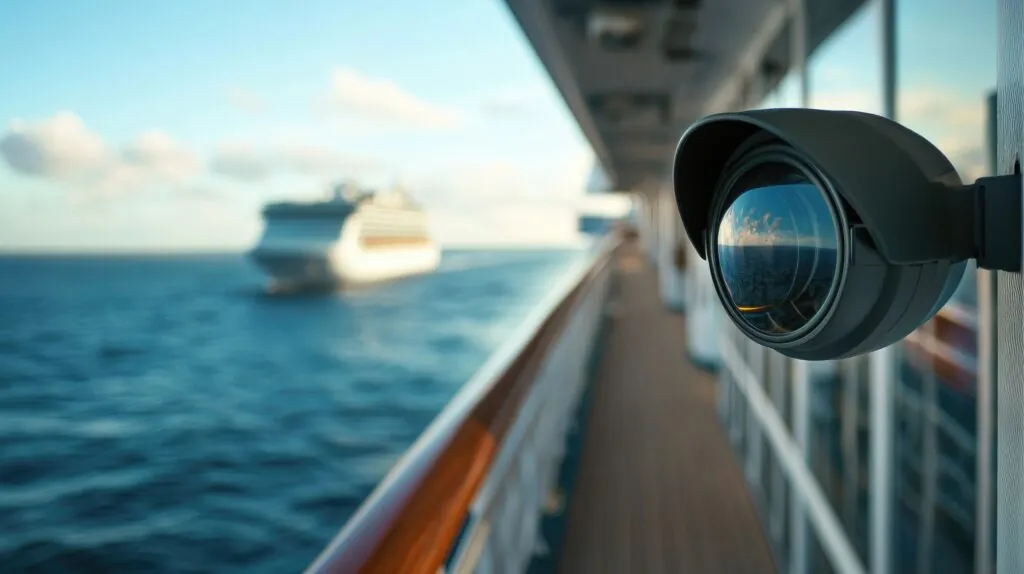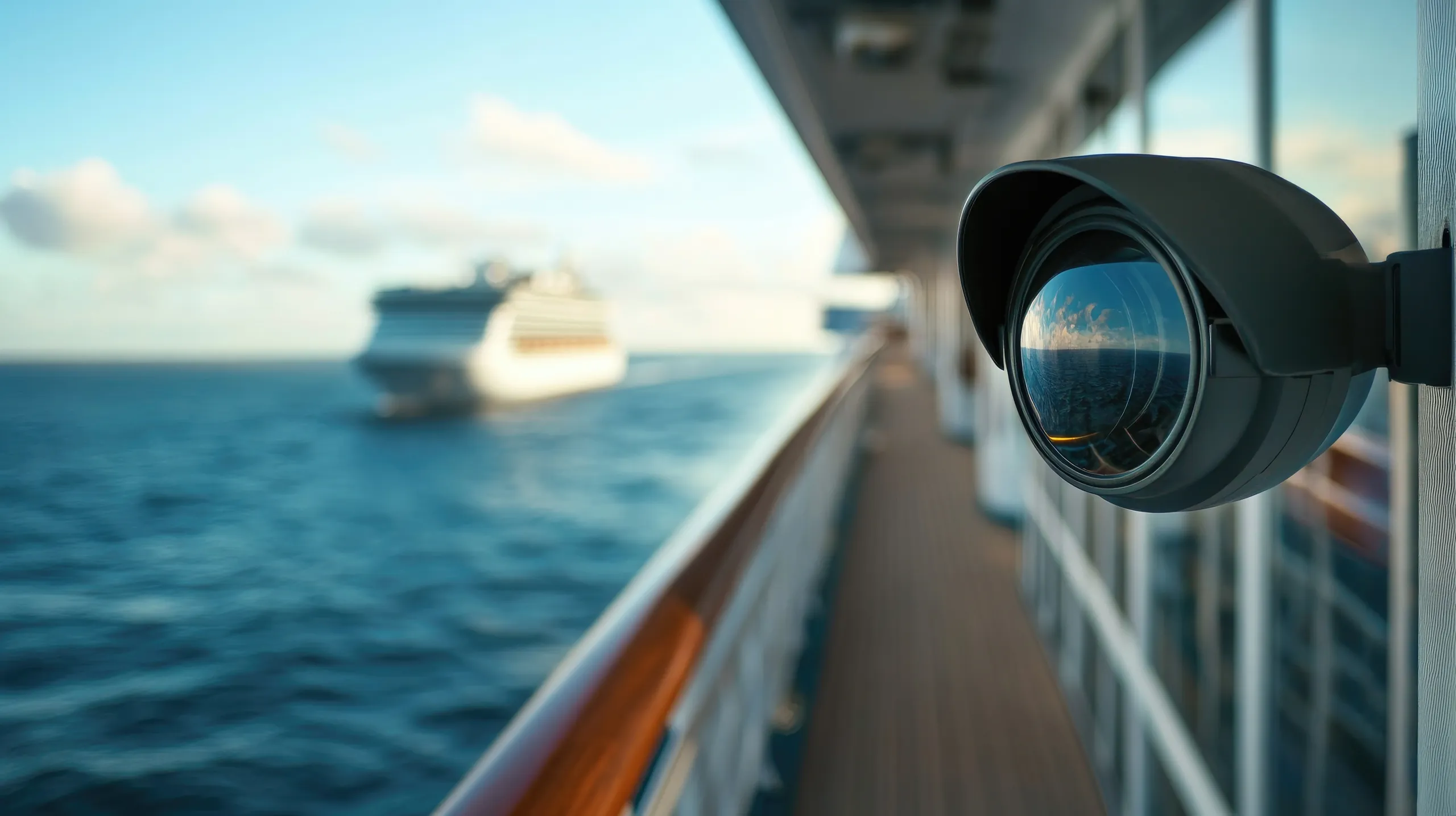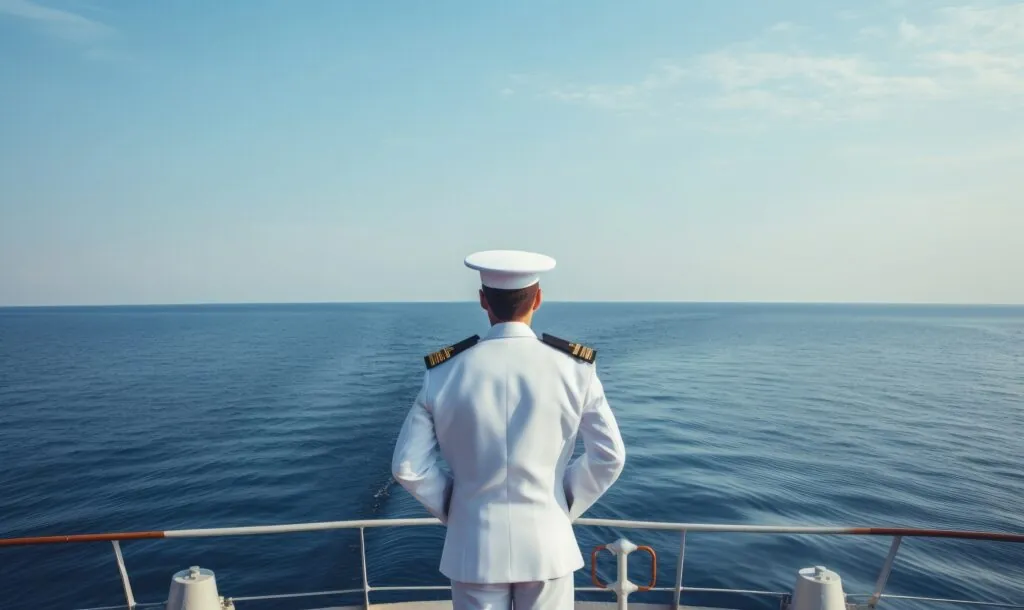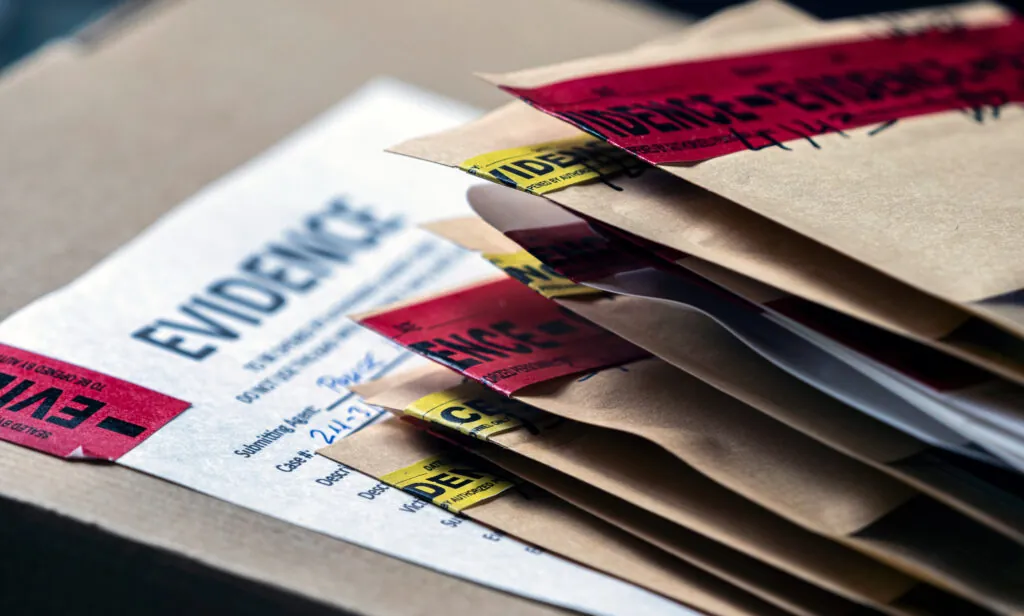Cruise Line Liability for Not Monitoring Security Footage
Cruise vacations offer a dream escape—until something goes wrong. When passengers suffer injuries or experience onboard incidents, many turn to cruise ship security footage for answers. But what if that footage was never reviewed—or worse, never preserved at all?

Cruise ship surveillance failures are more common than many realize. And when security footage is ignored, lost, or mishandled, it can have serious legal and safety consequences. This article explores your rights as a passenger, how maritime law applies, and what to do if you suspect negligence related to cruise ship video monitoring.
The Role of Surveillance on Modern Cruise Ships
Why Cruise Lines Install Cameras
CCTV cameras are a standard feature on most cruise ships today. They are placed in public areas like hallways, stairwells, lounges, casinos, and near pools. Their purpose is twofold: to deter inappropriate or criminal activity, and to document incidents in real-time.
How Passengers Perceive Surveillance
Many passengers assume that cameras are actively monitored 24/7. The presence of surveillance equipment creates a perception of safety, encouraging people to feel secure even in high-traffic or secluded areas. But in reality, many cameras are either not monitored in real time or are only reviewed reactively—after something has already happened.
Understanding Maritime Law and the Duty of Care
What Is Maritime Law?
Maritime law governs incidents that occur on navigable waters, including cruise ships. It provides a legal framework for handling passenger injuries, contractual disputes, and the obligations cruise lines have to ensure safety.
The Cruise Line’s Duty of Care
Cruise companies owe their passengers a heightened “duty of care.” This legal standard requires them to take reasonable measures to protect guests from harm, including maintaining operational surveillance systems, actively monitoring risky zones, and properly responding to onboard incidents.
When Surveillance Systems Fail
Cameras That Aren’t Actively Watched
One of the most common failures is passive surveillance. A ship might have cameras in place, but if there’s no one actively observing the feeds, dangerous or illegal activity can go unnoticed until it’s too late. Real-time monitoring is essential for timely intervention.
Delayed Footage Review After Incidents
Another major issue is the delay in reviewing footage. When passengers report incidents like falls, thefts, or assaults, the expectation is that staff will quickly access the footage. However, many cruise lines wait days before attempting to review the video—by which time it may have been overwritten or lost.
Incomplete Camera Coverage
Not all areas of the ship are covered by cameras. Stairwells, remote decks, and inside elevators may have no video surveillance at all. Even when cameras are present, angles may be obstructed, lighting may be poor, or the footage may be too low quality to provide meaningful evidence.
Legal Implications of Ignored Surveillance Footage
Can You Sue a Cruise Line?
Yes. If a cruise line fails to monitor, preserve, or review surveillance footage in a timely manner—and that failure contributes to or worsens an incident—you may have grounds for legal action. Cruise passengers have successfully sued for surveillance negligence under maritime law.
When Ignoring Footage Becomes Negligence
Negligence arises when a cruise line breaches its duty of care, causing harm to a passenger. Ignoring available footage, not staffing surveillance rooms, or failing to investigate after a formal report are all examples of this breach. If timely review or active monitoring could have prevented injury, liability may be established.
The Legal Impact of Deleted or Lost Footage
If footage was lost or deleted, the cruise line may face claims for spoliation of evidence. Courts often presume that missing footage would have supported the injured passenger’s case. This presumption can heavily sway the outcome of a lawsuit.
Your Legal Rights as a Passenger
1. Right to Safety and Reasonable Care
You have a legal right to expect a reasonably safe environment while onboard. That includes active surveillance systems and properly trained personnel who respond to security incidents.
2. Right to Request Video Evidence
If you’re injured or involved in an onboard incident, you can formally request that the cruise line preserve surveillance footage. If the cruise line fails to do so after receiving notice, that becomes a potential liability issue in your favor.
3. Right to File a Claim
Passengers have the right to file personal injury lawsuits against cruise lines for negligence—including surveillance negligence. Such claims can include damages for medical expenses, lost wages, pain and suffering, and emotional distress.
The Importance of Timely Evidence
Why Every Minute Counts
Surveillance footage is often overwritten within days unless specifically preserved. This makes prompt action essential. Waiting too long to request video can result in its permanent loss, weakening your potential case.
Video as the Most Reliable Witness
In many incidents, there are no eyewitnesses or reliable accounts. Video footage serves as an unbiased record of what occurred and when. Without it, passengers often face difficulty proving their version of events.
Steps to Take After a Cruise Incident
Step 1: Document Everything
Take photographs of the scene, your injuries, and any visible surveillance cameras nearby. Record names and contact information of witnesses. Write down a detailed timeline while the memory is fresh.
Step 2: File an Official Report
Notify ship staff and make sure an official incident report is filed. This creates a formal paper trail and signals the cruise line to take the matter seriously.
Step 3: Request Surveillance Footage
Submit a written request to the cruise line asking for all video footage related to your incident. Be specific with the date, time, and location. This helps establish a timeline for legal claims.
Step 4: Contact a Maritime Injury Lawyer
Maritime law is highly specialized. A lawyer experienced in cruise ship negligence can send preservation letters, gather medical records, and begin the process of filing a claim.
Building a Strong Negligence Case
Proving the Cruise Line’s Breach
To win a negligence case, you must prove that the cruise line had a duty of care, breached that duty, and that the breach directly caused your harm. Failing to monitor or preserve surveillance footage is a strong basis for showing breach of duty.
The Role of Expert Testimony
In some cases, lawyers will bring in maritime experts or video forensics analysts to evaluate the cruise ship’s surveillance systems and determine whether standard protocols were violated.
Using Spoliation to Your Advantage
If it can be shown that video was deleted or lost after a formal request, you may benefit from a legal concept called spoliation. This allows courts to presume that the missing footage would have harmed the cruise line’s defense, which can result in higher compensation for you.
Surveillance Negligence: A Widespread Issue
Despite the advancement in technology, many cruise lines still struggle with surveillance protocols. Passengers often assume they are being watched and protected, but investigations have revealed multiple systemic failures—especially when incidents involve poor monitoring or missing video.
This is not just a legal concern. It is a matter of public safety. Cruise lines must be held accountable when their surveillance systems fail the very people they’re meant to protect.
Frequently Asked Questions About Cruise Ship Surveillance and Legal Liability
Can I sue a cruise line if they didn’t watch the security footage?
Yes, you can sue a cruise line if they failed to monitor or review security footage that could have prevented your injury or clarified the circumstances of an onboard incident. Maritime law holds cruise lines to a heightened duty of care, and failing to use available technology to protect passengers can constitute negligence. If their failure to act on surveillance footage contributed to your harm, you may have grounds for a legal claim.
What if the cruise ship says the footage was deleted?
If the cruise ship deleted footage after an incident occurred or after a request to preserve it was made, this could lead to a legal claim for spoliation of evidence. Courts may interpret the destruction or loss of surveillance video as an attempt to conceal unfavorable evidence. This can strengthen your case significantly, sometimes leading to presumptions that favor the injured passenger.
How long do cruise ships keep surveillance footage?
Most cruise lines retain surveillance footage for a limited time, typically between 7 to 30 days, depending on their internal policies and storage capabilities. This retention period can vary, and if footage is not specifically requested soon after an incident, it may be overwritten or lost. That’s why it’s crucial to act quickly by requesting video evidence in writing and contacting a lawyer as soon as possible.
Are cruise ship cameras monitored 24/7?
Despite the widespread belief that all areas of a cruise ship are monitored around the clock, many ships do not have the staff or resources to provide real-time surveillance coverage in every area. Some areas may be unmonitored entirely, and in many cases, footage is only reviewed after an incident has already been reported.
Do I have the right to request cruise ship video footage?
As a passenger, you have the right to request that surveillance footage be preserved and reviewed, especially if it pertains to an incident in which you were involved. While cruise lines are not legally required to provide you with immediate access to video, they are obligated to retain it once they’ve been made aware of a potential claim. An attorney can formally request the footage on your behalf and ensure proper legal protocols are followed.
Contact The Cruise Injury Law Firm Today
If you believe you or a loved one suffered because cruise ship surveillance was ignored, unmonitored, or deleted, you may have legal grounds for compensation. Do not wait.
Time is critical in preserving evidence and securing your rights. Our skilled maritime personal injury attorney can help you navigate this complex legal area, ensure crucial footage is requested and preserved, and build a strong case for damages.
Contact The Cruise Injury Law Firm today and take the first step toward justice.






